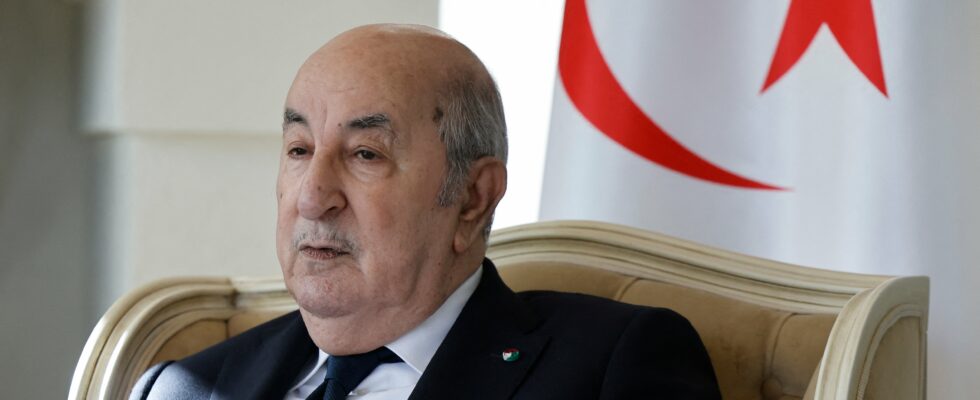So many hopes dashed. So many Fridays spent fighting in the Algerian streets against President Abdelaziz Bouteflika. So many nights shouting “freedom!” To see the prison close in no time. Chase away the puppet democracy, it comes galloping back. Already at the end of 2019, after the resignation of “Boutef'”, the Army, alone at the helm of this country of 46 million inhabitants, propelled Abdelmadjid Tebboune to the presidency, under the cover of a vote. Here we go again five years later: the presidential election of September 7, 2024, is only a form of election. To feign competition, the authorities saved two candidacies against the incumbent. The outcome is no mystery, although Abdelmadjid Tebboune has barely campaigned. The 79-year-old head of state will be running for a second term.
A ghost president at the head of a bloodless nation, governed by terror. What a program! Sad Algeria, abandoned by its young people, its doctors, its intellectuals, its journalists, when the latter are not languishing behind bars. A few courageous people still refuse to “desert”, as they say, at their own risk. More than 200 activists of the Hirak, this “revolution of smiles” who only asked to participate in the future of their country, are imprisoned. How many more tomorrow? Article 87 bis of the penal code revised in June 2021 makes the task so easy: anyone who calls for “changing the system of governance by unconstitutional means” can be convicted of “terrorism or sabotage”.
State Paranoia
The height of state paranoia, the president signed a decree this summer generalizing the secondment of military personnel to the management of civil administrations. As if the generals did not already arrogate this right to themselves. This time, the practice is law, a sign of radicalization of a deaf and blind power, distrustful of all. “In Algeria, the army owns the State. That is its only project”, summarizes Kader Abderrahim, lecturer at Sciences Po, author of Geopolitics of Algeria (Ed. Bibliomonde, 2020).
The defense budget has reached new heights since 2023: $22 billion, twice as much as in 2022. “The threat is on all the country’s borders,” continues Kader Abderrahim. “In addition to tensions with Morocco, there is, on the eastern flank, the Libyan chaos; to the south and west, the Sahelian quagmire. No one can cover so many fronts without developing a solid diplomacy based on allies. But Algeria is incapable of doing so.” An influential regional sponsor yesterday, Algiers is losing ground in its immediate entourage. In Mali as in Niger, the new generation of putschists no longer wants the tutelage of this large northern neighbor. Bamako recently denounced the 2015 peace agreements, for which Algeria stood as guarantor. No one is calling on it to play mediator anymore. Worse, the BRICS club rejected its application, a major setback for a country which, in the 1960s and 1970s, was the beacon of the non-aligned.
Meanwhile, the Moroccan rival continues its diplomatic offensive on the African continent, and beyond. The latest episode to date, Emmanuel Macron’s recognition of Moroccan sovereignty over Western Sahara. “If France has until now been sparing in its relations with Algeria on this issue, it was because of the country’s weight and its regional influence,” notes Ali Bensaad, professor at the French Institute of Geopolitics (Paris 8 University), in a blog post. And he concludes that Algeria “no longer weighs in France’s choices.”
“The Algerian regime is both in a political impasse internally and in a dangerous diplomatic isolation,” agrees Kader Abderrahim. Sooner or later, Algiers will pay the price. In the meantime, the generals are cashing in on the revenues from the oil and gas windfall.
.
